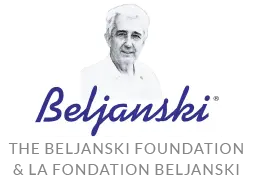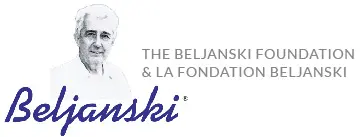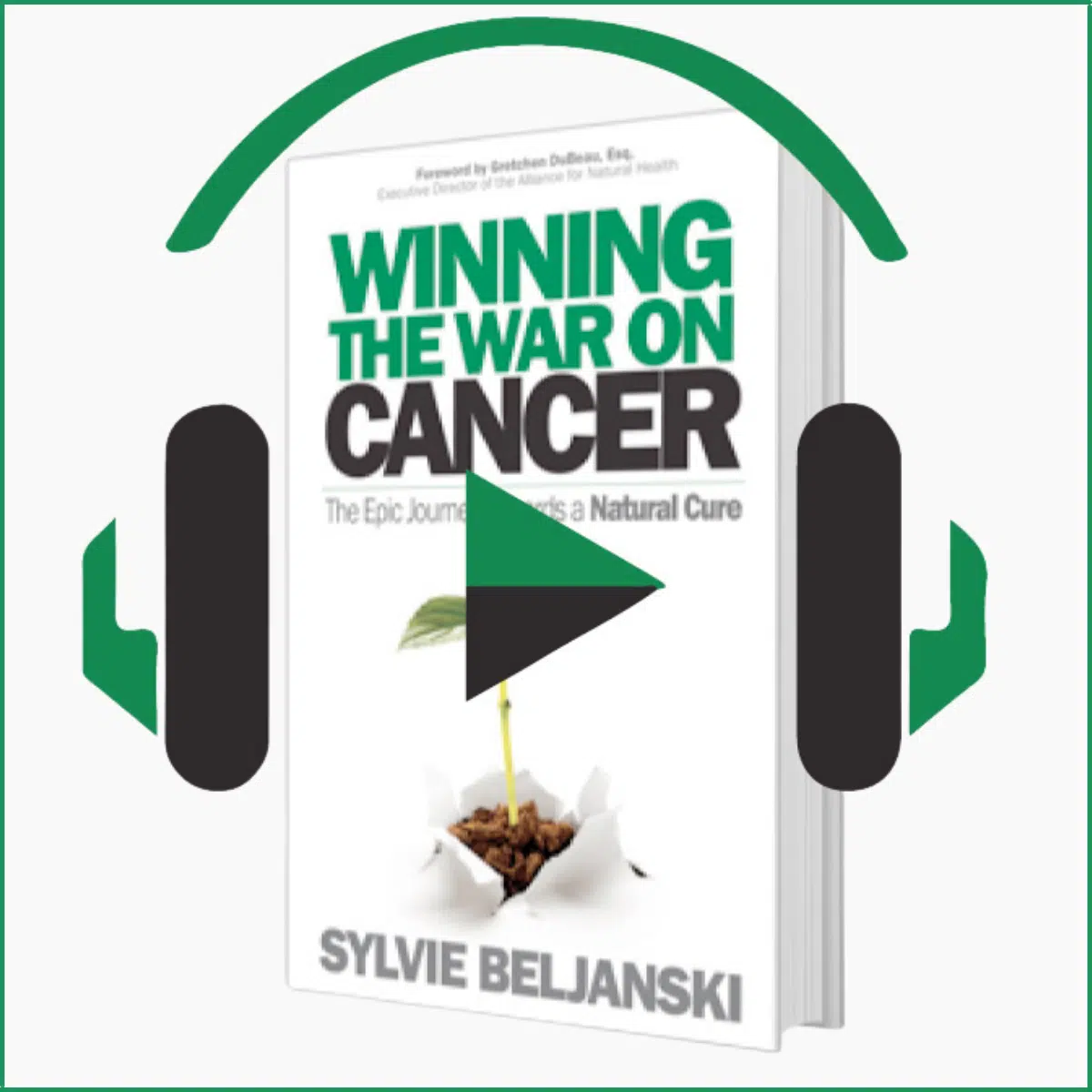
Henri B.
His story against Prostate Cancer by Dr. Morton Walker
For eleven years, Henri B., Ph.D., a resident of southern France and currently retired as Professor of Physics at the University of Paris, had been Director of Research at the CNRS, and for eleven years the Administrator of a prominent Cancer Treatment Center of Villejuif near Paris. The CNRS in France is equivalent to the National Institutes of Health (NIH) in the United States. As administrator of the Center, invariably Dr. B. had participated in executive decisions about the awarding of research grants for evaluations of medical therapies. He studied all aspects of treatment for most types of diseases, including cancer. Dr. B. received exposure to every means of health care available worldwide. If he personally had need of some sort of therapeutic intervention for illness, Dr. B. certainly was free to choose the method he believed to be most beneficial for his own healing.
This university professor, so very knowledgeable about medical treatment and other life-saving issues, preserved his own life by electing to follow the concepts and use the natural products developed by Dr. Mirko Beljanski. Professor B. assured that, for himself, nothing else would do. He says, “My experience at the CNRS—which brought me in close contact for more than a decade with the most progressive therapies—taught me the best, the mediocre, and the worst treatments. I want what works!”
The Personal Case History Provided by Henri B., Ph.D.
In June 1994, the professor was told by a urologist local to the area of his country village that at age seventy-three, he was affected by prostate cancer.
“My doctor, a conventionally-practicing country physician who specialized in the human urogenital system, said to me, ‘The only treatment you can receive for your malignant prostate gland is radiotherapy. Your cancer is five years advanced, and because of the tumor’s particular location, it is inoperable.’
“I did not doubt the accuracy of the doctor’s diagnosis nor the possible efficacy of the treatment he was offering,” Professor B. assured me. “But radiation was not a treatment in which I had any confidence. It would have been the treatment of last resort for my prostate. I knew of other men who had failed to benefit from receiving it, and I knew from my eleven years at the Cancer Treatment Center of Villejuif that a treatment from radiotherapy was rarely permanent and likely inadequate.”
Since his patient’s prostate tumor was estimated to be present for so many years, the professor’s urologist admitted to being dubious about administering radiation right away and decided to wait. “Instead,” Professor B. said, “my doctor added a further recommendation which was: ‘You require some further investigatory work because I want to learn if any metastases of the cancer has occurred over this long interval of non-treatment.’
“Consequently, the urology specialist had me go through a lot more testing at the local hospital and at various medical laboratory offices some distances from my home,” says the professor. “I cooperatively traveled to where I was directed and went through whatever tests were requested of me.”
Despite his undergoing a large number of additional laboratory and clinical examinations, including a PSA test, serum chemistry profiles, bone chemistry enzymes, carcinoembryonic antigen (CEA), chest X-rays, CT scan of the lower abdomen, and urological ultrasound to measure tumor size, no dramatic treatment was recommended or administered for his prostate cancer.
“Let’s give no treatment but rather watch the tumor and observe its growth,” was the decision agreed upon by Dr. Henri B.’s country urologist in conjunction with another urologist and a prostate gland specialist his personal doctor had called in as consultants.
When Dr. B. showed an elevated Prostate Specific Antigen (PSA), he received an initial ultrasound examination which also revealed a suspicious hard nodule inside his prostate gland. His biopsy, taken under local anesthesia, was subjected to biochemical and histological tests (a microscopic analysis of the prostate tissue) which determined that the gland’s growth was of a nonaggressive type of cancer. It had not metastasized. The former physics professor was lucky in that he was not in immediate danger, but his prostate diagnosis was reconfirmed as a definite cancer when he underwent still another biopsy.
Professor B. was diagnosed with prostate cancer nine years before I interviewed him in September 2003. Before using Beljanski’s supplements, he tried the conventional route. To treat the man’s life-threatening illness, the medical consultants from Paris who had been called in to examine him offered no recommendations to the patient’s personal urologist except to watch and wait. However, B.’s uncertain country urologist finally decided to do something on his own. He elected to supervise, from a distance, the use of cancer-corrective hormonal treatment. Henri B. received hormone-diminishing treatment from an endocrine gland therapist at a sophisticated hospital clinic in Paris throughout July 1994. The country urologist kept apprised of his progress—or lack of it.
The patient took the approved quantity of anti-hormone substances for several months but with no observable result. He grew discouraged, subsequently stopped the anti-hormonal medications, and remained in Paris. Professor B. did not return to his country home in the South of France until after the first of August 1994. It was then that a long-time close personal friend—another well-respected former university professor—visited him. This gentleman was somewhat knowledgeable about holistic adjunctive treatment for malignant tumors. He knew a number of doctors who administered them.
“My visitor told me,” continued Dr. B., “‘since you’ve advised me that you eventually may be forced to take radiotherapy for your prostate, I recommend that you consult a medical doctor I know, who utilizes certain complementary treatment products in his cancer practice. He is providing excellent results for patients just like you. Possibly this physician will help you to overcome the negative side effects that invariably accompany radiation treatment.’”
“I was open to my friend’s suggestion,” B. asserted.
Professor B. followed his colleague’s advice and consulted this recommended therapist who practices CAIM (Complementary, Alternative, and Integrative Medicine). Dr. Philippe Causé, M.D., thinks holistically, administering natural and nontoxic therapies to his patients. The French holistic physician subsequently dispensed two of Dr. Mirko Beljanski’s anticancer herbal supplements to Professor Henri B., for Dr. Causé’s experience was that they had worked effectively against cancers of several types before. His patients had benefited repeatedly. “I use Dr. Beljanski’s supplements as therapeutic preventatives,” Dr. Causé told the professor.
Professor B. was given golden-leaf Ginkgo biloba extract as well as the herbal alkaloid of Pao pereira. He ingested the two products faithfully and within a very short time the frequency of urinary urgency reduced from up to six times per night to just three. But while the urgency to urinate diminished, he was sometimes unable to bring on a urine stream. And once per week he found that his urine contained bright red blood. Men with prostate disease are likely to identify with these same prostatic difficulties as the professor. But within a month to six weeks, with the ingestion of two of Beljanski’s products, dispensed to him by Dr. Causé, all of his prostatic disease signs and symptoms improved. Dr. B. continued to ingest the anticancer botanicals that Dr. Causé had prescribed.
After another six months of using Beljanski’s products, having long since discontinued the anti-hormonal therapy and still never having received radiotherapy, Professor B. again traveled to Paris for a third full series of physical and laboratory examinations. These reports from the hospital clinic’s radiology and oncology departments and from the on-staff urologists who examined him were that Dr. B.’s prostate cancer was regressing—the enlarged gland itself had shrunk to less than half its original pathological size. These observing hospital doctors were confused and then upset by their inability to explain any reason for this man’s improvement, and they reported this to both the patient and to the patient’s country urologist.
“Don’t Tell Me About Beljanski!”
With great joy Professor B. reported to the Parisian hospital specialists first and then to his urologist in the south of France that the healing progress shown by the internal organ’s rejection of malignancy was likely coming from his ingestion of Beljanski’s supplements. They were the only pills he had been taking routinely. The hospital-based consultants listened and shrugged their shoulders with no verbal comment.
Despite being his personal urologist, the country specialist, however, appeared most irritated and even was aggressive in his response to the news. He literally shouted at Henri B., “I know about Beljanski, and I don’t want to hear anything more about him or his therapy. He is practicing medicine without a license. So don’t tell me about Beljanski!” The doctor then stormed out of the consultation room of his country office, and Professor B. sat there for a long time in a state of shock.
In about twenty minutes, the urologist returned and handed his patient a written prescription to take to a pharmacist. It contained nothing related to Beljanski’s products; instead, it was another prescription for anti-hormonal medications, which Professor B. had previously received and not filled. The pharmaceutical order also held no mention of radiotherapy. His country urologist additionally told Professor B., “You can take anything else that you want, but I don’t want to hear about how you are treating yourself. If there is something more that you want to swallow, you are free to do that, but do not tell me.”
In effect, Professor B. was on his own, for he did not take any of the anti-hormone medications and continued with Beljanski’s products. By May 1995 the prostate pathology had completely disappeared and his PSA was down from 9.6 ng/ml to essentially normal at 4.0 ng/ml. The patient felt happy beyond words.
Six months later, he became overly confident in his body’s new-found health. The Professor told me, “I asked myself—being a man of science specializing in physics—what has cured me? I decided to stop taking these two Beljanski products just to see what would happen. Whether or not he wanted to hear from me or about Beljanskis work, I wrote to my local country urologist and made him an offer. I told him that he could use me as a human guinea pig to see if the prostate cancer would return as a result of my discontinuing the ingestion of Beljanski’s two herbs.”
“My doctor wrote back two weeks later and did not mention the Beljanski herbal products. Instead he issued me a warning, saying: ‘When prostate cancer returns after it has been in remission, it is twice as difficult to treat and get rid of a second time.’ I understood his warning and was cautioned by it,” Professor B. said.
One of Beljanski’s Herbals Helps Osteoarthritic Knee Pain
The professor continued: “Then one evening about six weeks later as I was preparing to take a shower, arthritic-type pains hit me once again in both knees. Perhaps I failed to mention to you the osteoarthritis that had been bothering me for more than twelve years stopped causing me any difficulty when I began to take Beljanski’s supplements. After I had taken Dr. Beljanski’s herbal extracts, the pains disappeared and I hadn’t experienced pains in my knees for at least a year. In fact, I had forgotten about these osteoarthritic joint pains, as I had become much more concerned about the prostate cancer, which was of course more serious.
“The resumption of my previous osteoarthritic symptoms was taken by me as a message that at least one of Dr. Beljanski’s products had to become part of my life once again. I didn’t resume taking the Ginkgo biloba because it had been dispensed to me by Dr. Philippe Causé specifically to neutralize the negative effects of radiotherapy, which Dr. Cause assumed I would take; but I had not received any radiation. So I restarted only the Pao pereira herbal extract at a somewhat lower dosage from six capsules daily to four capsules daily.
“The knee pains went away fast, but when I reduced the dosage a few months later to just three capsules per day, the arthritic pains returned. Four Pao pereira was better for me—if I continued to take two in the morning and two at night, my arthritic knees gave me no problems. As I’ve stated, I did not resume taking the Ginkgo biloba at all,” says Dr. B. “As far as my mind, emotions and body are concerned, I am feeling alert, relaxed, vigorous, strong and fine in every way—a state of health that I attribute to my use of Dr. Mirko Beljanski’s herbal extracts.”
French physics Professor Henri B. also made it very clear that he wished to add this final observation to my report on his case study: “As a man of science, I believe I’m qualified to make a certain judgment. My declaration is that the readers of your book, Dr. Walker, will come to recognize this truth: Dr. Mirko Beljanski’s intellectual prowess combined the experimental curiosity of Michael Faraday [the father of modern electrical theory], the methodical rigor of Antoine Lavoisier [the father of modern chemistry], the theoretical vision of Albert Einstein [the father of modern physics], and the inventive genius of Thomas Edison [the father of modern technological innovation].”



